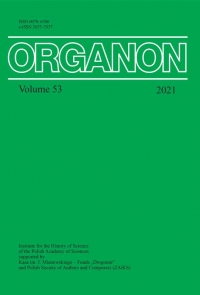Angélique Rougon: une déclinaison romanesque de l’enfant sauvage. Pour une lecture anthropologique du Rêve d’Émile Zola
Angélique Rougon: a novelistic version of the savage child.
An anthropological reading of Emile Zola’s Le Rêve
Author(s): Fanny DrouotSubject(s): French Literature
Published by: Wydawnictwo Uniwersytetu Jagiellońskiego
Keywords: anthropology; savage child; Emile Zola; epistemocriticism; litterature;
Summary/Abstract: Angélique Rougon is the main character from Le Rêve, a novel from Emile Zola’s Rougon–Macquart cycle, atypical because the author originally conceived of it in a way radically different from the rest of his work. He promises his heroine a happy destiny by moving her from her abandoned childhood identity to a triumphant marital status. But the tale fails at the same time as the project for a successful socialization, and the novel becomes an expression of two tensions: a literary tension on one side, because of the gap between the first plan and the completed text; and an anthropological tension on the other because it questions the possibility of a happy evolution from a symbolical savage state to an environment defined by its ancestral culture.
Journal: Organon
- Issue Year: 2023
- Issue No: 55
- Page Range: 5-24
- Page Count: 20
- Language: French

